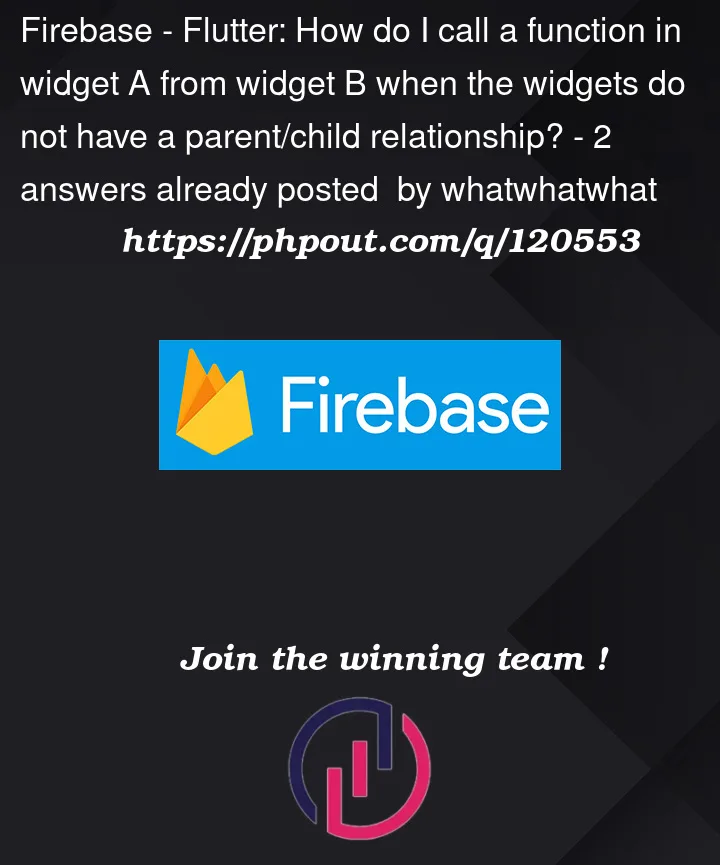I have the following structure for my app, where ChatScreen contains the ChatHeader and the ChatFooter.
---ChatHeader.dart --- MessageDao.dart
ChatScreen.dart ---
---ChatFooter.dart
In the ChatHeader widget, I call another widget called MessageDao.dart. This widget generates the button that the user can press on the ChatHeader widget to play audio.
In the ChatFooter widget, this widget contains a different button that the user can press to record using their mic.
When I play audio using the button from ChatHeader -> MessageDao, this works just fine. However, if I click the button in the ChatFooter widget to start recording while in the middle of playing audio from the first button, this audio doesn’t stop playing. It keeps playing while I’m recording. I have a stopPlaying() function in MessageDao that I can use, but I’m not sure how to call a function in widget A from widget B.
Or in other words, how do I call MessageDao.stopPlaying() from inside ChatFooter.dart?




2
Answers
You can use some event mechanism to notify
MessageDaoabout an event in your app, e.g.,AudioRecordingStartedEvent.MessageDaoyou subscribe on the event and stop the playing audio,ChatFooteryou fire the event.On pub.dev a lot of libraries that implement EventBus, e.g. event_bus_plus
With this type of situation, the ideal solution is to take a page out of React and ‘lift the state up‘; this means that whatever method is on the child should be lifted to a higher node in the widget tree (e.g.
ChatScreen) and then pass the function down to the nodes that use it (ChatHeaderandChatFooter). You could also try leveragingInheritedWidgetafter ‘lifting state up’ and avoid sending methods down a chain of widgets.Now, this is a recurring theme with Flutter apps (and overall declarative frameworks) and is a problem that can have multiple solutions. My suggestion would be that you take a look at different state management options like
bloc,provider,mobx,riverpod,rxdart,reduxorevent_bus_plusjust to mention a few. Said libraries will give you the abstractions you need for each use case and help you avoid implementing really complex logic that you might need to solve problems similar to this one by yourself.Of course, this is an important decision for your project so I suggest you take a good look and choose whatever you feel comfortable with or is similar to something you have worked on before.
Good luck my fellow Flutter developer, choose wisely 😛